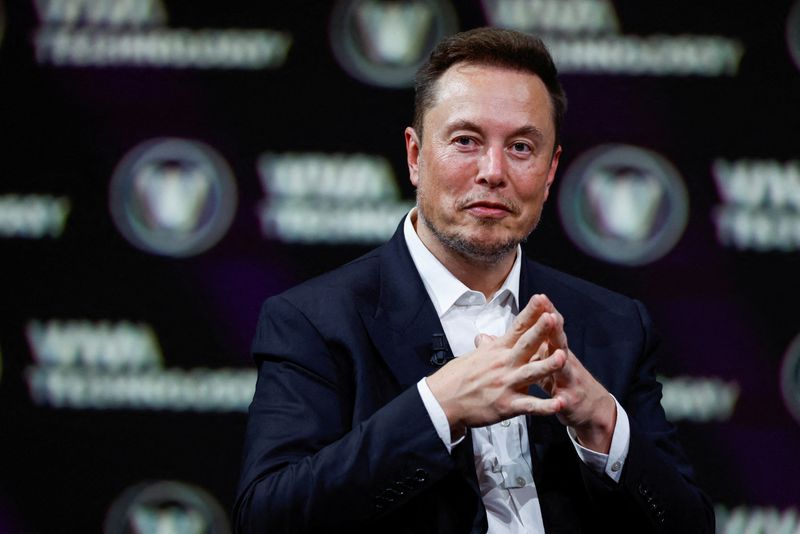By Ross Kerber
(Reuters) -Top proxy advisory firm ISS recommended Tesla (NASDAQ:TSLA) shareholders vote against ratifying CEO Elon Musk's $56 billion pay package, calling the compensation excessive in a rejection of the plan set by the electric vehicle maker's board.
In a report sent by a representative late on Thursday, Institutional Shareholder Services also recommended a vote against Tesla director James Murdoch, but backed votes for director Kimbal Musk, Elon Musk's brother, and for the company's proposed move to change its state of incorporation to Texas from Delaware.
The move follows a similar recommendation for a vote against Musk's pay package by proxy advisory firm Glass Lewis last week.
The vote is seen as a referendum on Musk's leadership, as investors worry that the billionaire entrepreneur is distracted by his other ventures and that his often controversial comments are weighing on the reputation and sales of Tesla.
Tesla did not respond to a request for comment.
The massive compensation arrangement, the biggest for a corporate CEO in America, set rewards based on Tesla's market value and operational milestones. But in January, a Delaware judge voided the plan, and Tesla subsequently sought to move its state of incorporation to Texas.
Unusually, Tesla put the 2018 pay plan up for a re-ratification vote at its upcoming annual meeting on June 13.
PROXY INFLUENCE
While the recommendations from the big proxy advisory firms play a role in focusing attention on certain issues at corporate annual meetings, their exact influence on votes is up for debate and criticism.
A recent University of Utah study found their recommendations can have a significant impact on votes but also found the firms themselves may only be channeling the views of investors, their customers.
Tesla responded to Glass Lewis' recommendations in a securities filing earlier this week, saying Musk is creating wealth for Tesla stockholders and has "skin in the game."
In recommending votes against Musk's pay, ISS wrote that "although the structure of the grant's performance hurdles arguably contributed to, as well as reflect, the company's significant financial growth during the performance period, the total award value remains excessive, even given the company's success."
"In addition, the grant, in many ways, failed to achieve the board's other original objectives of focusing CEO Musk on the interests of Tesla shareholders, as opposed to other business endeavors, and aligning his financial interests more closely with those of Tesla stockholders," ISS' report said.
Other concerns include "a lack of clarity on the board's plan" for Musk's future pay, ISS wrote.
ISS recommended a vote against director and audit committee member Murdoch "given concerns about the risk oversight function of the board."
ISS wrote that while it had concerns about the process used by the Tesla board to decide to move to Texas, it is "not readily apparent that the rights of shareholders would be materially harmed as a result of the proposed reincorporation."
Tesla is making a public effort to rally support for the pay package and the company's board has justified the compensation by saying it is necessary to make sure Musk prioritizes Tesla over his other commitments.
Tesla shares were slightly lower in premarket trading on Friday, and have declined about 28% so far this year.
"It's a very interesting case for Tesla, given it is the most widely held stock globally by retail investors who frankly don't give a hoot about what ISS tells them to do," said Ben Laidler, global markets strategist at trading platform eToro.
About 44% of Tesla's common stock is held by non-professional shareholders including retail investors, the highest percentage of the 10 largest companies in the S&P 500, according to S&P Global Market Intelligence.

A report by eToro earlier this month showed that votes had been exercised on around a quarter of all Tesla shares held by users of the trading platform, with more than 80% voting in favor of Musk's pay package.
"If anybody's going to buck the trend of what proxy advisors say, it's going to be Tesla. The vote is a real test case for the power of retail investors," Laidler said.